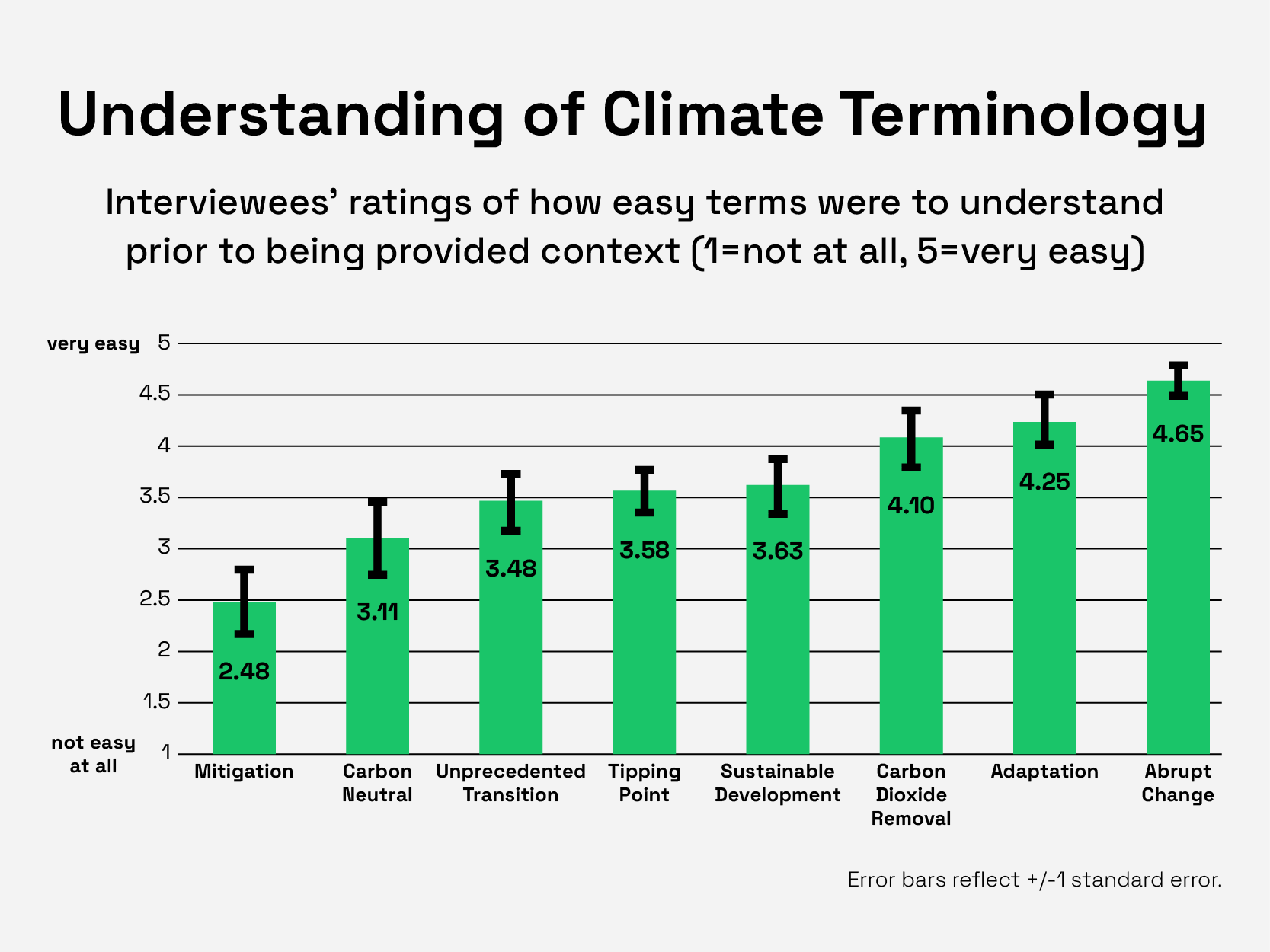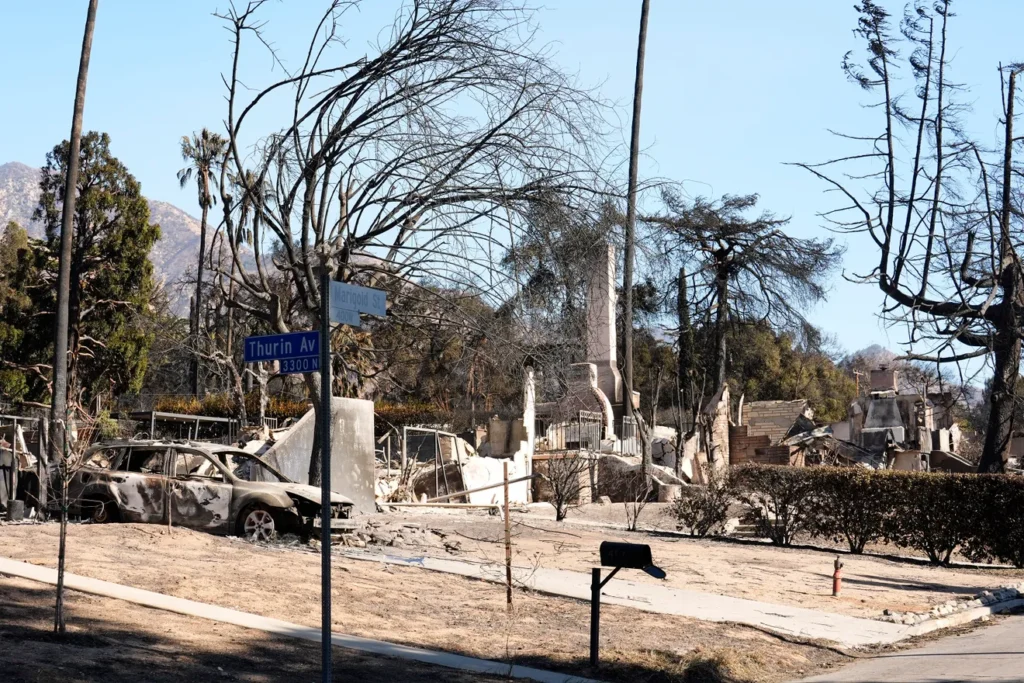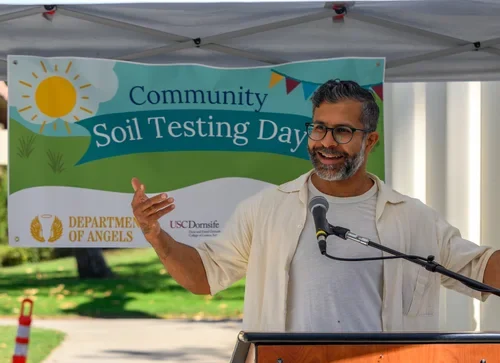Simplifying climate change language
Simplifying how experts and academics talk about climate change, so the public can understand threats facing their communities—and respond.
USC Completed 2020
Share this page

Impact
Our research shows that simplifying language can remove barriers and make climate change more relatable, understandable, and actionable. Your neighbor may not understand “climate adaptation”, but they can relate to planting trees to improve air quality. To get everyone on board, we need your abuela, hairdresser, and policymaker to understand each other.
Challenge
Climate science communicators want to keep the public informed about climate threats and how to prepare for them, but the language they use is often dense and hard to understand. The UN Foundation reached out to us to help them create simpler, more straightforward talking points that resonate with the general public.
Our Plan
We developed clear communication guidelines to help the UN Foundation make climate messaging more accessible. Drawing on the USC Understanding America Survey, we analyzed how people interpret key terms from Intergovernmental Panel on Climate Change (IPCC) reports and translated those insights into recommendations for how to connect more effectively with the public.
Project Goals
Understand what people know and don’t know
We used the USC Understanding America Survey to test how people interpret key climate terms, asking participants to react to the language used in major climate reports. This revealed which words felt too technical and which were often misinterpreted in everyday contexts.
Help experts reach the public
We provided messaging guidelines based on participant feedback and existing research, showing climate change experts how to better connect with the public.
Approach
We brought together behavioral scientists and interviewers to see how everyday Americans understood climate terms, then used those insights to recommend new strategies to help leaders better communicate and inspire action.
Qualitative Interview
Readability Score
Data Analysis
Study Design






